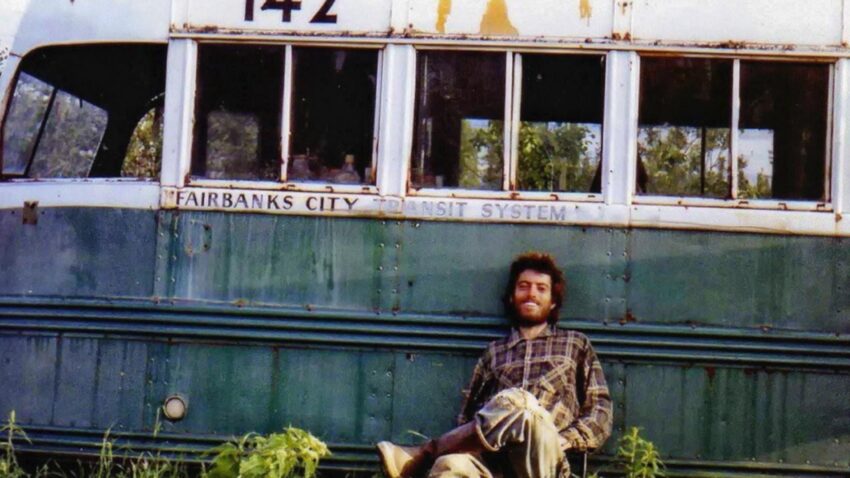Reign in 2024 with the five most inspiring biographies in world literature that will serve as a source of inspiration and hope for this upcoming year.
Biographies are the source of tremendous inspiration and hope, as there is nothing better than real-life narratives of other people who, despite many odds and hardships, not only survive but also turn their lives into something worthwhile. Biographies have this incredible way of revealing the raw and real aspects of a person’s life – the ups, downs, and everything in between. They unfold an individual’s struggles, laying bare the human challenges that life throws at them. It’s like having a front-row seat to witness someone’s journey, with all its twists and turns. And in those pages, you find not just stories of success and accomplishment but also the nitty-gritty details of how they battled through adversity. It’s a powerful reminder that even the most remarkable people have faced setbacks, doubts, and hurdles. Yet, what shines through is their resilience, their ability to overcome, and the personal growth that stems from those experiences.
For readers grappling with their own challenges, it’s like having a guidebook written by someone who’s been through it all. These inspiring biographies become a source of motivation, a beacon of hope that says, “You’re not alone, and you can get through this too.” There’s a unique connection that forms between the reader and the subject, as if the struggles and triumphs on those pages echo the reader’s own journey. In essence, biographies are not just about the accomplishments; they are about the human spirit, the tenacity to face difficulties, and the profound lessons learned along the way. They’re a reminder that behind every success, there’s a story of perseverance, and that story can be a powerful catalyst for inspiration and personal growth. Here’s a list of 5 inspiring biographies:
1. Long Walk to Freedom by Nelson Mandela
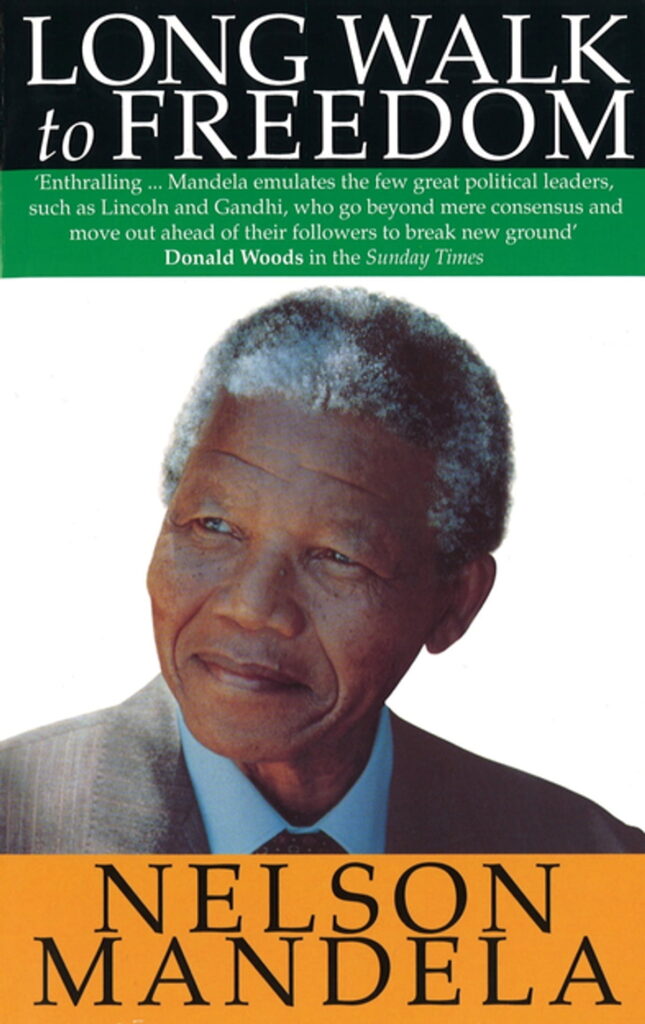
Long Walk to Freedom stands as Nelson Mandela’s autobiographical masterpiece, offering an intimate portrayal of his extraordinary life. Spanning from his humble beginnings in a rural village to his pivotal role as a central figure in the anti-apartheid movement and eventual presidency of South Africa, the book, published in 1994, unfolds as a compelling narrative of resilience and valor amidst systemic injustice. Mandela’s reflections traverse the trajectory of his evolution from a youthful activist to a seasoned political leader, meticulously chronicling his engagement with the African National Congress (ANC) and the tireless struggles against the oppressive apartheid regime.
The very title, Long Walk to Freedom, encapsulates Mandela’s enduring commitment to the ideals of justice and equality. Within the pages, he not only recounts his personal sacrifices, notably the grueling 27 years spent in prison but also amplifies the collective struggle of the South African people against racial oppression. This autobiography serves as a testament to Mandela’s unwavering dedication to reconciliation and forgiveness. It grants profound insights into the intricate dynamics of leadership, underscores the significance of tenacity in the face of adversity, and illuminates the transformative power of forgiveness. It is a poignant memoir, offering a nuanced exploration of Mandela’s life and his profound impact as a global symbol of resistance, reconciliation, and the indomitable triumph of the human spirit over oppression.
2. The Story of My Experiments with Truth by Mahatma Gandhi
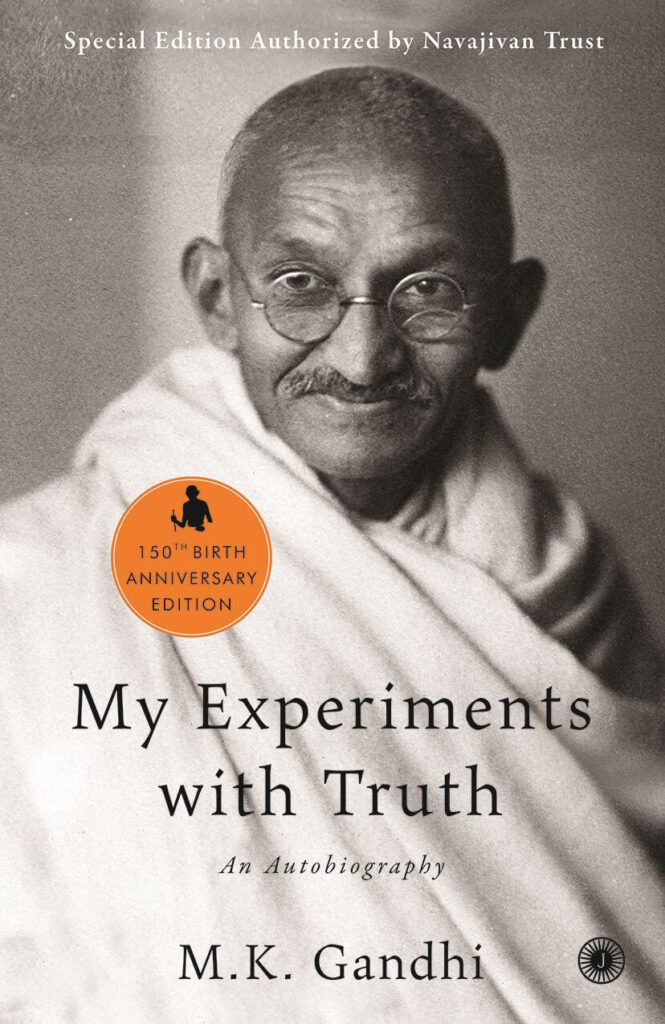
The Story of My Experiments with Truth is the autobiography of Mohandas Karamchand Gandhi, commonly known as Mahatma Gandhi. Originally written in Gujarati, it was later translated into English. The book provides a detailed and introspective account of Gandhi’s life, philosophy, and the development of his principles of nonviolent resistance. It was published in a serialized form between 1925 and 1929 and covers Gandhi’s early years, his experiences in South Africa, and his pivotal role in India’s struggle for independence.
The autobiography is divided into various chapters, each focusing on a specific period or aspect of Gandhi’s life. It explores his personal struggles, ethical dilemmas, and the evolution of his philosophy of Satyagraha, which is the principle of nonviolent resistance. Gandhi describes his experiments with various principles and practices, detailing how he sought to align his life with his deeply held beliefs. The book remains a key text for those interested in Gandhi’s life and philosophy, offering a firsthand account of the man who played a central role in India’s struggle for independence and left an indelible mark on the world through his commitment to nonviolence and truth.
Also Read: 10 Best Works by Dr. BR Ambedkar That Should Be On Your Reading List
3. Into the Wild by Jon Krakauer
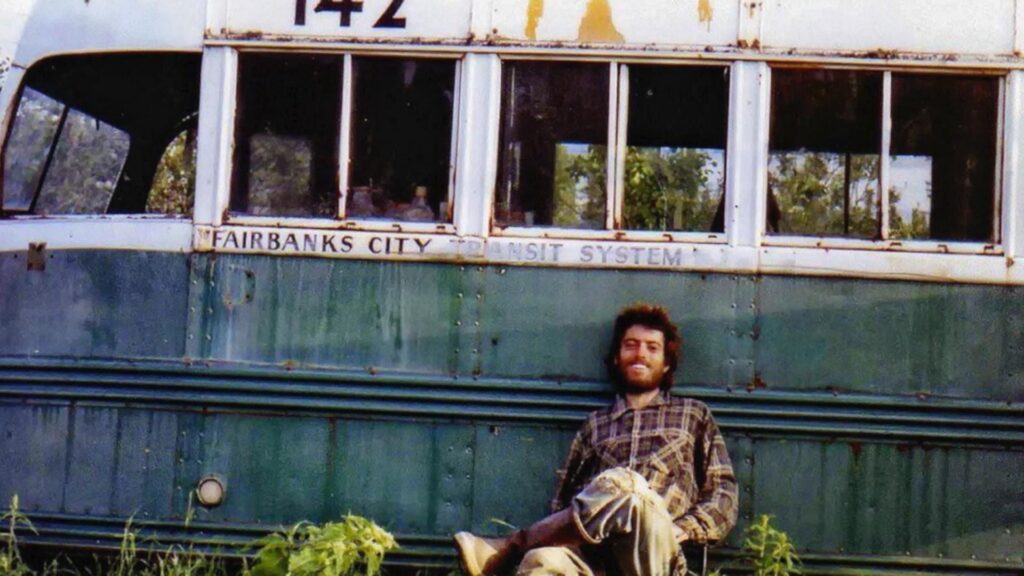
Into the Wild, a captivating non-fiction work penned by Jon Krakauer in 1996, unfolds the gripping tale of Christopher McCandless. The book originated from a 9,000-word article Krakauer wrote for Outside magazine in 1993, titled Death of an Innocent. This literary journey has left an indelible mark, evolving into a film directed by Sean Penn in 2007, with Emile Hirsch embodying the role of McCandless. The narrative meticulously traces the life of McCandless, who, post-Emory University graduation in 1990, severed ties with his family, donated his $24,500 college fund to Oxfam, and embarked on a transformative expedition across the Western United States.
A critical juncture occurred when McCandless abandoned his 1982 Datsun B210 after a flash flood. Subsequently, on April 28, 1992, he hitchhiked to the Stampede Trail in Alaska, equipped with minimal supplies. McCandless survived for 113 days, ultimately perishing around August 18, 1992. Krakauer, retracing McCandless’s odyssey, interprets his ascetic tendencies through the influence of literary figures like Henry David Thoreau and Jack London.
Into the Wild has really struck a chord with people, sparking intense discussions about why Christopher McCandless did what he did and what it all means. The book makes you question things like why we crave personal freedom so much and what happens when we push idealism to the absolute limit. Reading it, you can’t help but reflect on your own connection with society. McCandless went to the extremes, cutting ties with everything familiar, making you ponder upon the fine line between independence and the ties that bind us to others. It’s not just about his journey into the Alaskan wilderness; it’s a journey into the complexities of being human.
4. The Immortal Life of Henrietta Lacks by Rebecca Skloot
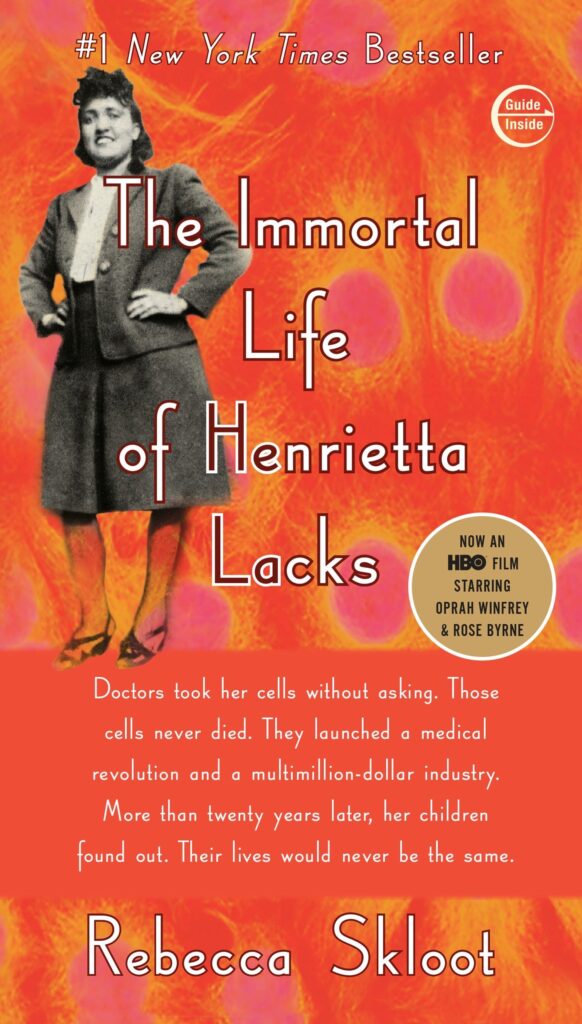
Born on September 19, 1972, Skloot is an American writer known for her contributions to popular science literature. She has a background in biological sciences and creative writing, which allows her to bring a unique perspective to the intersection of science and storytelling.
The Immortal Life of Henrietta Lacks revolves around the life of Henrietta Lacks, an African American woman whose cells were taken without her knowledge or consent in 1951. These cells, known as HeLa cells, became one of the most crucial tools in medicine, contributing to countless scientific advancements, including the development of the polio vaccine and breakthroughs in cancer research.
The biography is poignant and inspiring because it sheds light on the often-overlooked individuals behind scientific breakthroughs and the ethical considerations involved. It addresses ideas around consent, exploitation, and the intersection of scientific progress with human rights. Skloot’s narrative not only highlights the scientific legacy of Henrietta Lacks but also explores the complex and sometimes troubling relationship between medical advancements and the individuals whose bodies contribute to these breakthroughs.
5. Wild Swans: Three Daughters of China by Jung Chang
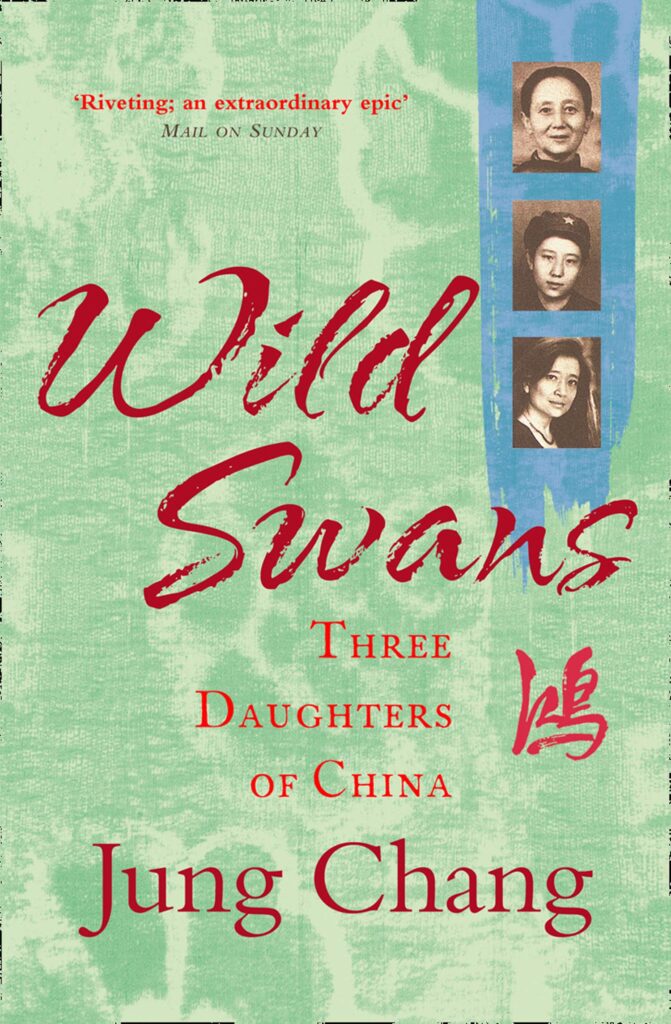
The highly acclaimed memoir Wild Swans: Three Daughters of China is noted for its exploration of the historical and experiential dimensions of individuals in China during crucial junctures in the nation’s modern history. Born in 1952 in Yibin, Sichuan Province, Jung Chang has established herself as a reputable figure in literature, particularly for her insightful works that delve into the intricacies of China’s past. Initially published in 1991, Wild Swans has garnered international recognition, captivating a global audience with its intimate portrayal of three generations of women within Chang’s familial lineage. The memoir unfolds against the backdrop of China’s tumultuous 20th-century history, providing a deeply personal narrative that encapsulates societal upheavals and political transformations.
Commencing with the life of Chang’s grandmother, who lived as a concubine to a warlord in the early 1900s, the narrative intricately traces the experiences of Chang’s mother. This journey encompasses significant historical events, including the fall of the warlord era, the Japanese occupation during World War II, and the Chinese Civil War, culminating in the establishment of the People’s Republic of China under Communist rule. The third segment of the memoir shifts inward, offering a detailed account of Jung Chang’s own experiences during the Cultural Revolution. The narrative eloquently captures the political turmoil, societal shifts, and personal tribulations confronted by the three generations of women. Through Chang’s storytelling prowess, readers gain profound insights into the repercussions of political ideologies, the impact of authoritarian governance, and the challenges faced by individuals navigating a rapidly evolving China.
The memoir intertwines personal and historical threads, providing a compelling narrative that imparts a visceral understanding of the social and political upheavals shaping China in the 20th century. Renowned for its vivid storytelling and its substantive contribution to the comprehension of modern Chinese history.

